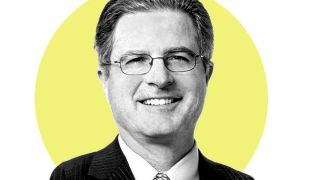 In a not so surprising turn of events, Chevron’s CEO heir apparent, John Watson, spoke out against U.S. climate change legislation — offering the party line argument that increasing regulation will jack up energy prices and let the air out of our barely buoyant economy. His is just one voice in a chorus of fossil fuel executives opposing the Kerry-Boxer bill pending in the Senate.
In a not so surprising turn of events, Chevron’s CEO heir apparent, John Watson, spoke out against U.S. climate change legislation — offering the party line argument that increasing regulation will jack up energy prices and let the air out of our barely buoyant economy. His is just one voice in a chorus of fossil fuel executives opposing the Kerry-Boxer bill pending in the Senate.
But what makes his voice interesting is how hard Chevron has been trying to greenwash its business this year. It makes sense for the big oil and gas players — Chevron, Shell, BP, and Total among them — to invest in some positive marketing along these lines. They all have catchy slogans: “A new energy future is dawning,” “Human Energy,” “Beyond Petroleum,” etc. Yet Chevron, and investing arm, Chevron Technology Ventures, have gone a step ahead.
Investing heavily in biofuel companies, including Mascoma, LS9, and solar power enterprises like Brightsource Energy and Konarka, the oil and gas giant appears to have a realistic grasp on the future of advanced fuels. It has also taken the initiative to clean up its existing oil extraction operations by contracting and funding Soane Energy, maker of a polymer substance that separates water and contaminants.
So here it’s racked up all this cleantech capital, but its CEO-to-be (as of Jan. 1) is still out telling reporters, “As written, these bills would lay heavy new costs on every family and business in the U.S.” and that the legislation can “do far more harm than good to our economy and American workers.” He followed up by saying that the proposed goal to cut greenhouse gas emissions by 20 percent by 2020 (from 2005 levels) is outright impossible.
AI Weekly
The must-read newsletter for AI and Big Data industry written by Khari Johnson, Kyle Wiggers, and Seth Colaner.
Included with VentureBeat Insider and VentureBeat VIP memberships.
It’s not hard to discern what’s going on here. If the Kerry-Boxer bill did pass, establishing a carbon cap-and-trade system and setting mandates for renewable energy generation, companies like Chevron would have to spend much more money to a) buy the requisite carbon emission credits to trade and b) lay out more capital for solar, wind and geothermal development in order to stay on the right side of the government.
So when Watson objects to the additional cost burden for the average Joe Blow pinching pennies to fill his gas tank, he’s probably — and, again, unshockingly — more concerned about Chevron’s coffers.
As for the company’s apparent good will in the green space, it looks like biofuel is the perfect opportunity play. Not only does it get the credit for going green and thinking outside oil well, it is also supporting products that complement — rather than replace — what it is already selling. Both LS9 and Mascoma create some gasoline additives. And even if one of them commercialized a gasoline substitute, much of the same infrastructure could be used.
Chevron isn’t the only big energy company that recently showed its spots when asked about climate legislation. In June, Northern California utility Pacific Gas & Electric (slogan: “We Can Do This.”) undermined its extensive smart metering and renewable power integration efforts by objecting to two state bills encouraging consumer investment in solar energy.
In both these cases, cost was the deciding factor — further evidence that it’s still the green in the bank that matters most when it comes to cleantech investing and policy.
 VentureBeat is hosting GreenBeat, the seminal executive conference on the Smart Grid, on Nov. 18-19, featuring keynotes from Nobel Prize winner Al Gore and Kleiner Perkins’ John Doerr. Get your discounted early-bird tickets before Oct. 31 at GreenBeat2009.com.
VentureBeat is hosting GreenBeat, the seminal executive conference on the Smart Grid, on Nov. 18-19, featuring keynotes from Nobel Prize winner Al Gore and Kleiner Perkins’ John Doerr. Get your discounted early-bird tickets before Oct. 31 at GreenBeat2009.com.
[Image from BusinessWeek]
VentureBeat's mission is to be a digital town square for technical decision-makers to gain knowledge about transformative enterprise technology and transact. Learn More